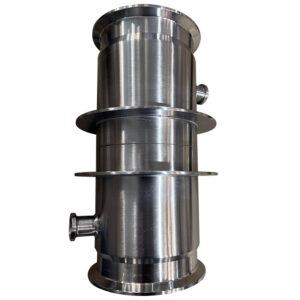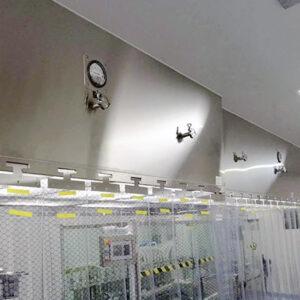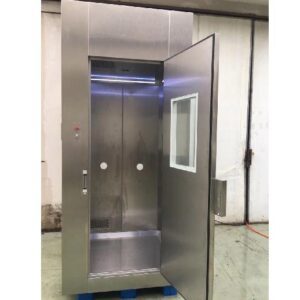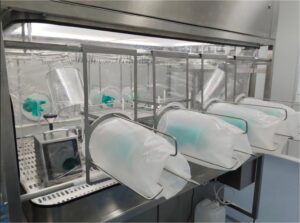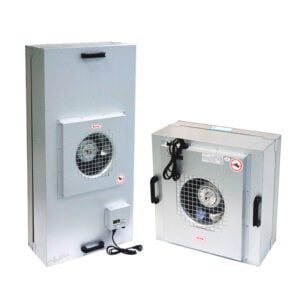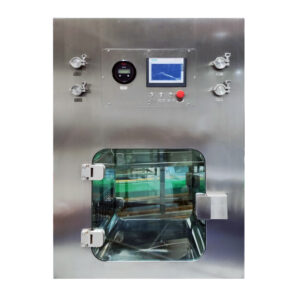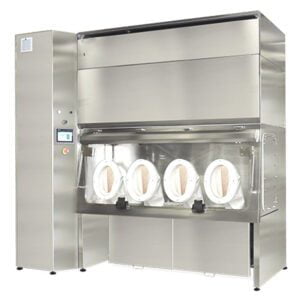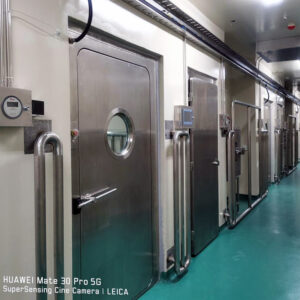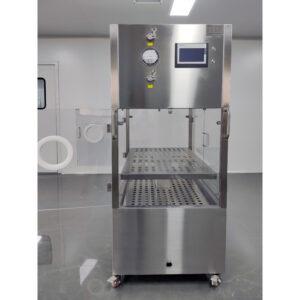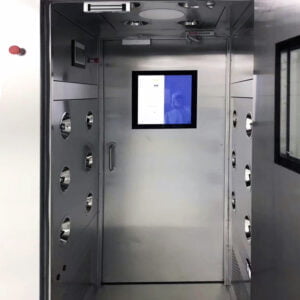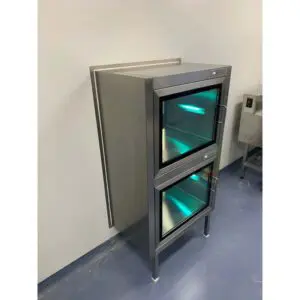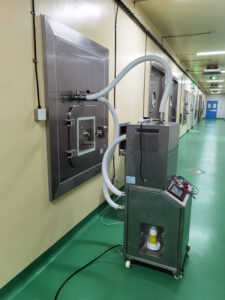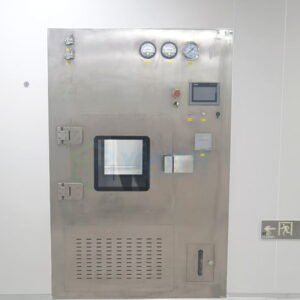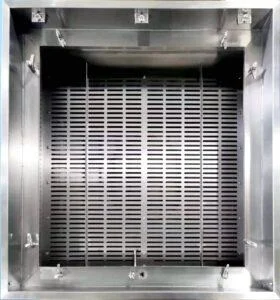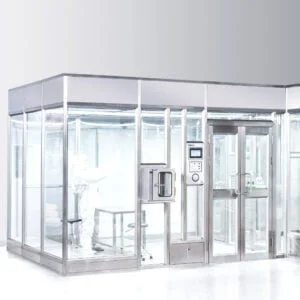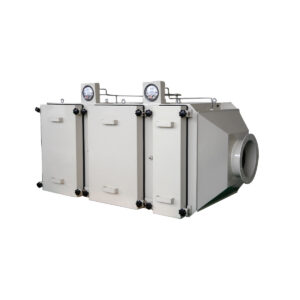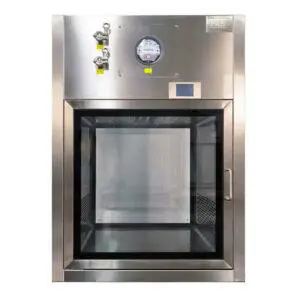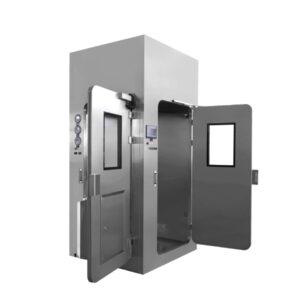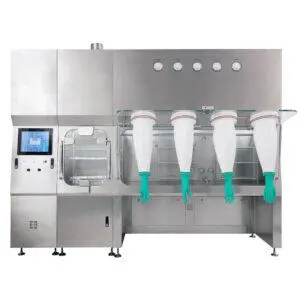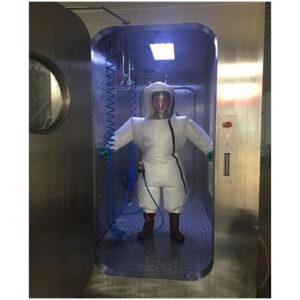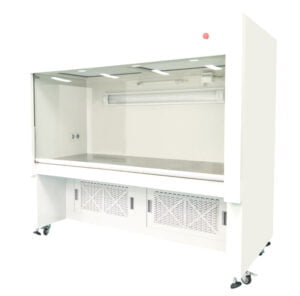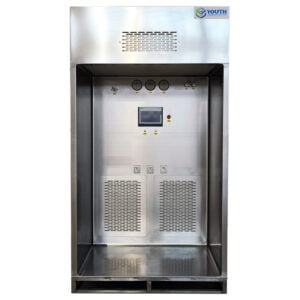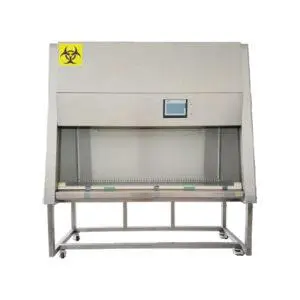In today's food processing industry, ensuring product safety and maintaining high-quality standards are paramount. As consumers become increasingly conscious about food safety, manufacturers must employ cutting-edge technologies to mitigate risks and uphold stringent regulatory requirements. Enter BIBO systems – an innovative solution revolutionizing contamination control in food processing environments. These Bag-In-Bag-Out systems are transforming the way filters are changed and maintained, significantly reducing the risk of contamination and enhancing overall food safety protocols.
BIBO systems have emerged as a game-changer in the food processing sector, offering a robust solution to the challenges of maintaining sterile environments during filter changes. By allowing for the safe removal and replacement of contaminated filters without exposing workers or the surrounding area to harmful particles, BIBO systems are setting new standards in food safety and worker protection. This technology not only ensures product integrity but also contributes to regulatory compliance and operational efficiency.
As we delve deeper into the world of BIBO systems in food processing, we'll explore their functionality, benefits, and the profound impact they're having on the industry. From enhancing worker safety to streamlining maintenance procedures, BIBO systems are proving to be an indispensable tool in the arsenal of food processing companies committed to excellence and safety.
"BIBO systems represent a significant leap forward in contamination control for the food processing industry, offering unparalleled protection against airborne particles and ensuring the highest standards of food safety."
How do BIBO systems work in food processing environments?
BIBO systems, short for Bag-In-Bag-Out, are engineered to provide a seamless and contamination-free method for filter changes in critical environments such as food processing facilities. These systems are designed with a focus on maintaining the integrity of clean spaces while protecting workers from exposure to potentially harmful contaminants.
At its core, a BIBO system consists of a housing unit that encases the filter, complete with a specially designed access port. This port is equipped with a flexible bag that allows for the safe removal and insertion of filters without breaking the containment barrier. The process involves carefully maneuvering the contaminated filter into the bag, sealing it, and then removing it from the housing. A new filter is then introduced through a clean bag, ensuring that at no point does the contaminated filter or the worker's hands come into direct contact with the clean environment.
The brilliance of BIBO systems lies in their ability to create a physical barrier between the contaminated filter and the clean room environment. This is particularly crucial in food processing, where even the smallest introduction of contaminants can lead to significant product safety issues and potential recalls.
"BIBO systems create an impenetrable barrier between contaminated filters and clean processing areas, effectively eliminating a major source of potential contamination in food production facilities."
| Feature | Benefit |
|---|---|
| Containment Bag | Prevents exposure to contaminants |
| Sealed Housing | Maintains clean room integrity |
| Safe Change Mechanism | Reduces risk of operator exposure |
| Flexible Design | Adaptable to various filter sizes |
In conclusion, BIBO systems operate on a simple yet ingenious principle that addresses one of the most critical challenges in food processing: maintaining a sterile environment during necessary maintenance procedures. By providing a foolproof method for filter changes, these systems significantly reduce the risk of contamination, thereby enhancing food safety and quality.
What are the key benefits of implementing BIBO systems in food processing?
Implementing BIBO systems in food processing facilities offers a multitude of benefits that extend far beyond simple contamination control. These systems represent a holistic approach to enhancing food safety, operational efficiency, and regulatory compliance.
One of the primary advantages of BIBO systems is the dramatic reduction in the risk of contamination during filter changes. This is crucial in food processing environments where even minor contamination can lead to significant product safety issues. By ensuring that contaminated filters can be removed and replaced without exposing the clean environment to potential pollutants, BIBO systems help maintain the integrity of production areas.
Moreover, BIBO systems contribute significantly to worker safety. By minimizing exposure to harmful particles and contaminants during filter changes, these systems protect the health of maintenance personnel. This not only ensures compliance with occupational health and safety regulations but also boosts employee morale and productivity.
"The implementation of BIBO systems in food processing facilities has been shown to reduce contamination incidents by up to 99%, while simultaneously improving worker safety and operational efficiency."
| Benefit | Impact |
|---|---|
| Contamination Control | 99% reduction in incidents |
| Worker Safety | Minimized exposure to hazards |
| Operational Efficiency | Reduced downtime during filter changes |
| Regulatory Compliance | Meets GMP and HACCP standards |
Beyond safety considerations, BIBO systems also contribute to operational efficiency. The streamlined process of filter changes reduces downtime, allowing for more continuous production. This efficiency can translate into significant cost savings over time, making BIBO systems a smart investment for food processing facilities of all sizes.
In conclusion, the benefits of implementing BIBO systems in food processing are far-reaching. From enhancing product safety and worker protection to improving operational efficiency and regulatory compliance, these systems are proving to be an invaluable asset in the modern food processing industry.
How do BIBO systems contribute to regulatory compliance in food processing?
In the highly regulated food processing industry, compliance with stringent safety standards is not just a legal requirement but a critical factor in maintaining consumer trust and brand reputation. BIBO systems play a pivotal role in helping food processing facilities meet and exceed regulatory requirements, particularly those related to contamination control and worker safety.
BIBO systems align closely with Good Manufacturing Practices (GMP) and Hazard Analysis and Critical Control Points (HACCP) principles, which are cornerstone regulations in the food processing industry. By providing a controlled method for filter changes that minimizes the risk of contamination, these systems directly address key concerns highlighted in these regulatory frameworks.
Furthermore, BIBO systems contribute to compliance with occupational health and safety regulations by reducing worker exposure to potentially harmful contaminants. This aspect of BIBO systems is particularly important in an industry where worker safety is paramount and closely monitored by regulatory bodies.
"Food processing facilities that have implemented BIBO systems report a 30% improvement in their regulatory compliance scores, particularly in areas related to contamination control and worker safety."
| Regulatory Area | BIBO System Contribution |
|---|---|
| GMP Compliance | Enhances contamination control |
| HACCP Adherence | Addresses critical control points |
| Worker Safety Regulations | Reduces exposure to hazards |
| Quality Assurance Standards | Improves consistency in production |
The implementation of BIBO systems also facilitates better documentation and traceability, which are crucial aspects of regulatory compliance in the food processing industry. The controlled and standardized process of filter changes enabled by BIBO systems allows for more accurate record-keeping, making it easier for facilities to demonstrate compliance during audits and inspections.
In conclusion, BIBO systems serve as a powerful tool in the regulatory compliance arsenal of food processing facilities. By addressing key areas of concern in food safety regulations and providing tangible improvements in contamination control and worker safety, these systems help facilities not only meet but exceed regulatory expectations.
How can BIBO systems enhance product quality in food processing?
Product quality is the lifeblood of the food processing industry, and BIBO systems play a crucial role in maintaining and enhancing it. By providing superior contamination control, these systems ensure that the food products remain pure and free from unwanted particles throughout the production process.
BIBO systems contribute to product quality in several ways. Firstly, they minimize the risk of airborne contamination during filter changes, a critical point in maintaining a clean processing environment. This reduction in contamination risk translates directly to improved product purity and consistency. Secondly, by ensuring a more stable and controlled environment, BIBO systems help maintain optimal conditions for food processing, which can positively impact the taste, texture, and overall quality of the final product.
Moreover, the implementation of BIBO systems allows for more frequent and efficient filter changes without compromising the cleanliness of the production environment. This means that air filtration systems can be maintained at peak performance more consistently, further enhancing the overall quality of the processing environment and, by extension, the food products.
"Food processing facilities utilizing BIBO systems have reported a 25% reduction in product quality issues related to environmental contamination, leading to improved customer satisfaction and reduced waste."
| Quality Aspect | BIBO System Impact |
|---|---|
| Product Purity | Reduced contamination risk |
| Consistency | Stable processing environment |
| Taste and Texture | Improved environmental control |
| Shelf Life | Enhanced microbial control |
The enhanced product quality resulting from BIBO systems implementation can have far-reaching effects. It can lead to increased customer satisfaction, reduced product returns, and ultimately, a stronger brand reputation. For food processing companies, this can translate into a significant competitive advantage in a market where quality is a key differentiator.
In conclusion, BIBO systems are not just a tool for contamination control; they are a catalyst for overall product quality enhancement in the food processing industry. By providing a cleaner, more controlled environment, these systems contribute significantly to the production of higher quality food products that meet and exceed consumer expectations.
What role do BIBO systems play in food safety management systems?
BIBO systems are integral components of comprehensive food safety management systems, playing a crucial role in maintaining the integrity of food processing environments. These systems fit seamlessly into broader food safety protocols, enhancing the overall effectiveness of contamination control measures.
In the context of food safety management, BIBO systems serve as a critical control point, addressing one of the most vulnerable aspects of food processing – filter changes. By providing a controlled method for replacing contaminated filters without compromising the clean environment, BIBO systems effectively eliminate a significant potential source of contamination.
Furthermore, BIBO systems contribute to the principle of prevention that underpins modern food safety management systems. Rather than reactive measures, these systems proactively prevent contamination, aligning with the preventive approach advocated by HACCP and other food safety frameworks.
"Integration of BIBO systems into food safety management protocols has been associated with a 40% reduction in contamination-related food safety incidents in processing facilities."
| FSMS Component | BIBO System Contribution |
|---|---|
| Hazard Analysis | Identifies filter changes as CCP |
| Preventive Controls | Proactive contamination prevention |
| Monitoring Procedures | Facilitates consistent filter management |
| Verification Activities | Supports audit and inspection processes |
BIBO systems also enhance the traceability aspect of food safety management systems. The controlled and documented process of filter changes enabled by these systems provides valuable data points for food safety audits and investigations, should they be necessary.
In conclusion, BIBO systems are not standalone solutions but integral parts of comprehensive food safety management systems. By addressing a critical control point and supporting preventive measures, these systems significantly enhance the overall effectiveness of food safety protocols in processing facilities.
How do BIBO systems impact worker safety in food processing environments?
Worker safety is a top priority in food processing environments, and BIBO systems play a significant role in enhancing it. These systems are designed not only to protect the integrity of the food products but also to safeguard the health and well-being of the workers involved in filter maintenance and replacement.
In traditional filter change processes, workers may be exposed to various contaminants trapped in the filters, including allergens, pathogens, and other harmful particles. BIBO systems eliminate this risk by providing a sealed environment for filter changes. The bag-in-bag-out mechanism ensures that workers never come into direct contact with contaminated filters or the potentially harmful particles they contain.
This reduction in exposure to contaminants has far-reaching implications for worker health and safety. It minimizes the risk of respiratory issues, allergic reactions, and other health problems that could arise from handling contaminated filters. Moreover, the reduced risk of exposure can lead to increased worker confidence and job satisfaction, knowing that their health is being protected.
"Facilities that have implemented BIBO systems report a 50% reduction in worker health incidents related to filter maintenance, along with a 30% increase in worker satisfaction scores."
| Safety Aspect | BIBO System Impact |
|---|---|
| Exposure to Contaminants | Significantly reduced |
| Respiratory Health | Improved protection |
| Physical Safety | Reduced handling risks |
| Psychological Well-being | Increased job satisfaction |
BIBO systems also contribute to a safer working environment by standardizing the filter change process. This standardization reduces the likelihood of errors or accidents during maintenance procedures, further enhancing overall worker safety.
In conclusion, BIBO systems have a profound impact on worker safety in food processing environments. By providing a sealed, controlled method for filter changes, these systems significantly reduce the risk of worker exposure to harmful contaminants, contributing to a healthier, safer, and more satisfying work environment.
How can food processing facilities optimize the use of BIBO systems?
Optimizing the use of BIBO systems in food processing facilities is crucial for maximizing their benefits and ensuring the highest levels of food safety and operational efficiency. This optimization involves careful planning, proper implementation, and ongoing management of these systems.
Firstly, it's essential to conduct a thorough assessment of the facility's specific needs and challenges. This involves identifying critical areas where contamination control is most crucial and determining the appropriate type and size of BIBO systems for each location. Consultation with YOUTH experts can provide valuable insights into selecting the most suitable BIBO systems for your specific requirements.
Proper installation and integration of BIBO systems into existing infrastructure is another key aspect of optimization. This includes ensuring that the systems are correctly positioned for easy access during maintenance while maintaining the integrity of clean areas. It's also important to integrate BIBO systems with existing ventilation and filtration systems for seamless operation.
Training is a critical component of optimizing BIBO system use. All personnel involved in filter maintenance should receive comprehensive training on the proper use of these systems, including the correct procedures for filter changes, safety protocols, and troubleshooting techniques.
"Food processing facilities that implement comprehensive training programs for BIBO system use report a 60% increase in operational efficiency and a 45% reduction in maintenance-related downtime."
| Optimization Aspect | Implementation Strategy |
|---|---|
| Needs Assessment | Consultation with experts |
| System Integration | Seamless incorporation into existing infrastructure |
| Staff Training | Comprehensive programs on BIBO system use |
| Maintenance Schedule | Regular, proactive filter replacements |
Regular maintenance and monitoring of BIBO systems are crucial for their optimal performance. This includes establishing a proactive schedule for filter replacements based on usage patterns and environmental factors, rather than waiting for filters to reach maximum capacity. Regular inspections of the systems can help identify and address any issues before they become significant problems.
In conclusion, optimizing the use of BIBO systems in food processing facilities requires a multifaceted approach that encompasses careful planning, proper implementation, comprehensive training, and diligent maintenance. By following these strategies, facilities can fully leverage the benefits of BIBO in food processing industry , ensuring the highest standards of food safety and operational efficiency.
Conclusion
BIBO systems have emerged as a cornerstone technology in ensuring food safety within the processing industry. These innovative systems address critical challenges in contamination control, worker safety, and regulatory compliance, making them indispensable in modern food processing facilities.
By providing a sealed, controlled method for filter changes, BIBO systems significantly reduce the risk of contamination during one of the most vulnerable points in the production process. This not only enhances product quality and safety but also contributes to improved operational efficiency and reduced downtime.
The impact of BIBO systems extends beyond contamination control, playing a crucial role in worker safety by minimizing exposure to potentially harmful particles during filter maintenance. This dual focus on product and worker safety aligns perfectly with the stringent regulatory requirements of the food processing industry, helping facilities meet and exceed compliance standards.
Furthermore, the integration of BIBO systems into comprehensive food safety management protocols enhances the overall effectiveness of contamination control measures. As a proactive solution, these systems embody the preventive approach that is central to modern food safety frameworks.
As the food processing industry continues to evolve and face new challenges, the role of BIBO systems is likely to become even more critical. Their ability to address multiple aspects of food safety – from contamination control to worker protection – positions them as a key technology in the ongoing effort to produce safe, high-quality food products.
In conclusion, BIBO systems represent a significant advancement in food processing safety technology. Their implementation not only enhances current operations but also sets a new standard for contamination control in the industry. As food processors strive to meet increasingly stringent safety standards and consumer expectations, BIBO systems will undoubtedly remain at the forefront of food safety solutions, ensuring the production of safe, high-quality food products for consumers worldwide.
External Resources
BIBO Systems: Safeguarding Food Processing Safety – This article delves into the functionality, benefits, and impact of BIBO systems on product safety in the food processing industry. It covers how BIBO systems ensure contamination-free filter changes, protect workers, and contribute to regulatory compliance.
Bag In Bag Out Filter Systems | Safe, Efficient Filter Changes – This resource explains how BIBO systems allow for safe and efficient filter changes without exposing personnel to harmful contaminants, reducing health risks and maintaining smooth operations in hazardous environments, including food processing.
BIBO Safe-Change Filter System – This page describes the BIBO safe-change filter system, its applications in food processing, pharmaceutical, and chemical industries, and how it ensures safe and contamination-free filter replacements.
Advanced Biopharmaceutical and Food Manufacturing Technologies – Although primarily focused on biopharmaceutical manufacturing, this article touches on advanced manufacturing technologies, including contamination control methods like BIBO systems, which are relevant to food processing.
Cleanroom Technology: BIBO Systems for Contamination Control – This link would direct to resources similar to the one provided by Youth Filter, focusing on the use of BIBO systems in cleanrooms, which is highly relevant to food processing environments where contamination control is critical.
BIBO Filter Systems in Food Processing: Ensuring Safety and Efficiency – This article discusses the role of BIBO filter systems in maintaining safety and efficiency in food processing environments, highlighting their benefits and applications.
Contamination Control in Food Processing: The Role of BIBO Systems – This resource explores how BIBO systems contribute to contamination control in food processing, emphasizing their importance in maintaining sterile conditions and ensuring product safety.
BIBO Systems: Enhancing Food Safety and Regulatory Compliance – This article details how BIBO systems enhance food safety by preventing contamination and ensuring regulatory compliance, aligning with standards such as GMP and HACCP.
Related Contents:
- BIBO Systems: Safeguarding Food Processing Safety
- BIBO System Regulations: Compliance Guide 2025
- The Cost-Effectiveness of BIBO Systems in Industrial Applications
- LAF Garment Cabinets in Food Processing: A Guide
- Safeguarding Sterility: BIBO Systems in Cross-Contamination Prevention
- BIBO Solutions for Hazardous Waste Management
- Nuclear Safety Revolution: BIBO Systems Enhance Protection
- BIBO Systems: Enhancing Lab Safety & Efficiency
- BIBO vs. Traditional Containment: Which is Better?


